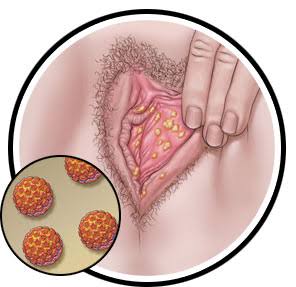
In-vitro (lab) fertilization (conception).
in-vitro fertilization (IVF) is a common infertility treatment which helps with fertilization, embryo development, and implantation,to aid conception.
IVF is an assisted reproductive technology(ART). it is the process of extracting eggs, retrieving a sperm sample, and then manually combining an egg and sperm in a laboratory dish. Then the embryo(s) is finally transferred to the uterus (uterine lining or the endometrial cavity). The process of transferring the embryo(s) into the uterus is commonly known as artificial insemination.
DO PARTICULAR WOMEN OPT FOR IVF?
Yes, there are some medical conditions that can make one opt for IVF, some women go for IVF because they choose to have multiple pregnancy. In-Vitro-Fertilization is for
– women who are under the age of 40 and have not conceived after 2years of regular unprotected sexual intercourse.
– Women with blocked or damaged fallopians tubes
– women suffering from endometriosis
– women with premature ovarian failures(POF) or ovarian insufficiency.
– couples with a genetic condition which can be screened for in the embryo.
– infertility of an unknown cause.
– women who have had their fallopian tubes removed
– same sex couples and single women
– low sperm count
– individuals with genetic disorder
– women with polycystic ovarian syndrome.
– women with multiple fibroid especially fibroid located at the fundal uterine segment.
– women with failed artificial insemination.
CAN A WOMAN CONCEIVE AFTER MENOPAUSE THROUGH IVF?
When you are close to menopause, you start missing your menses periodically. However, you haven’t officially reached menopause until you have gone a whole year without a period or menses. At this stage your estrogen and progesterone level decrease and birth control is no longer necessary because your hormone level is not suitable for ovulation and pregnancy. However, there are ways to take advantage of IVF during this stage. Which include;
– Eggs you have frozen earlier in life and
– fresh or frozen donor eggs.
Hormone therapy will be administered to prepare your body for implantation and to carry a baby to term. IVF after menopause has been successfully demonstrated but with a fertility expert. Menopausal women are more likely to experience minor or major complications of pregnancy after IVF compared to premenopausal women.
IVF CAN ALSO HELP MALE INFERTILITY (LOW SPERM COUNT)
Male factor infertility which is diagnosed by finding a low sperm count on a semen analysis is 30% of infertility related problems. If the sperm count is very low or there are other factors, such as abnormalities in the shape of the sperm or low motility, or if you have fertility issue as well, IVF with intracytoplasmic sperm injection (ICSI) may be a fertility treatment to consider. IVF with intracytoplasmic sperm injection (ICSI) allows an egg to be fertilized by a single sperm in the lab. The healthiest sperm.
IVF SUCCESS RATE
IVF is very much successful. According to a study of approximately 156,000 women, the average life-birth rate for the first cycle was 29.5%. Age does not play an important role in the success, as does the reason for your infertility. Using an egg donor will also affect your success.
IVF PROCESSES
During the IVF process, your doctor or physician will monitor;
-Your cycle before treatment.
-During your menses, your doctor will order for blood and baseline ultrasound to check your hormone level and to monitor your follicles.
-Ovarian stimulation and monitoring.
– final oocyte maturation.
– Egg retrieval
– Egg fertilization
– Embryo transfer
Cycle before treatment – you may be put on birth control pills after your IVF treatment is scheduled, this is potentially improve your odds of success and to decrease your risk of ovarian hyperstimulation syndrome, and ovarian cysts. But not every physician uses birth control pills the cycle before. You will be asked to track your ovulation and let your physician/doctor to know when you are ovulating. If you don’t get your cycles on your own, the doctor may prescribe progesterone drugs. This will bring on your period. The GnRH agonist is advised to be taken about six days or more after your first progesterone pill.
When you first get your menses or period – on the second day of your period, your doctor will likely order blood work and an ultrasound. Although, it may seem as if you have started medications before in the first stage. The first official day of your treatment cycle is the day you get your period. To check the size of your ovaries and ovarian cysts, blood baseline ultrasound will be performed.
Ovarian stimulation and monitoring – depending on your treatment protocol, this may mean anywhere from one to four shots everyday about a week to 10 days. Ovarian stimulation is administered to monitor the growth and development of the follicles by your doctor.
Final oocyte maturation – the oocyte is triggered through the last stage of maturation by injecting HCG injection.
Egg retrieval – a light sedative will be given to make you sleep through the procedure. This is done about 34 to 36 hours after you received the HCG shot. During this time, egg retrieval take place. One or more eggs are retrieved and used while some are frozen in case the procedure didn’t bring desired result.
Egg fertilization – Your partner may likely provide a semen sample the same morning you had the retrieval. The sperm will be put through a special washing process to separate the sperm from other components found in the semen. The doctor selects the good looking sperm and place about 10,000 sperm in each culture dish with an oocyte and keep it in a special incubator and after 12 to 24 hours, they are inspected for signs of fertilization.
Embryo transfer – about three to five days after the retrieval, healthiest looking embryo will be transferred through the vagina with the help of a thin tube or catheter. The number of embryo transferred depends on your discussion with your doctor.
About nine to twelve days after embryo transfer, a pregnancy test is ordered. It is usually a serum pregnancy test because a serum/blood test is more sensitive in detecting early pregnancy.
IVF RISKS
. Multiple births
. Ovarian hyperstimulation syndrome
. Miscarriages
. IVF is stressful both financially, physically, and emotionally.
Counseling support should be given to IVF patients to encourage them through varying ups and downs of fertility.









Thank you.
Thanks for that question Mr Austine. Before embarking on any fertility treatment, one has to be honest about how badly she wants a child. IVF costs vary by location and clinic and some insurance companies like NHS provide coverage for IVF. However, there are drugs that help to induce ovulation e.g clomid. This procedure can be done under the supervision of a specialist and it is less invasive to IVF.
Thank you. Someone told me that this process is costly and if that be the case, it means that the less privileged cannot afford it. What do you have to say about it?